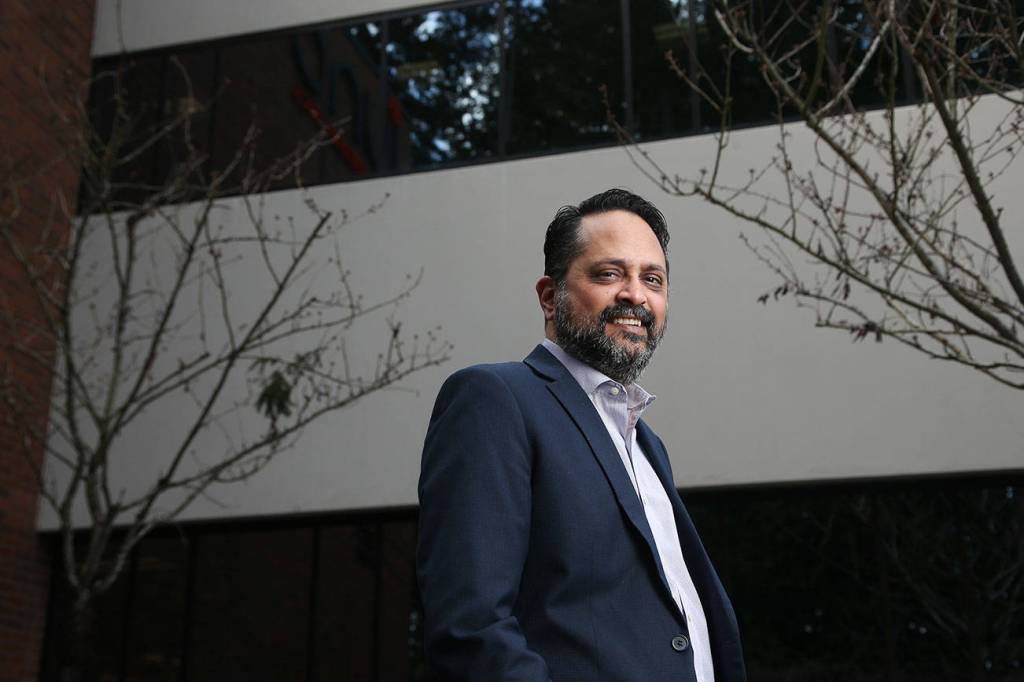Cancer patients nationwide send their blood cells to Bothell
Published 1:30 am Tuesday, April 6, 2021


BOTHELL — It might look like an ordinary manufacturing center from the parking lot, but this “factory” is busy producing cancer-fighting cells.
A Bristol Myers Squibb “therapy manufacturing center” in Bothell is ramping up production of a new blood-cancer treatment after it received federal approval earlier this year.
On Feb. 5, the U.S. Food and Drug Administration approved Breyanzi, a cell-based genetic therapy, for commercial use. A one-time infusion, it treats patients with non-Hodgkin’s lymphoma when at least two treatments haven’t worked or have stopped working.
Breyanzi involves re-engineering and revving up a patient’s own immune cells to detect, attack and kill cancer cells.
The 68,000-square-foot Bothell site is equipped to modify T-cells, said Snehal Patel, vice president and global head of cell therapy manufacturing.
Non-Hodgkin’s lymphoma is a cancer that starts in white blood cells called lymphocytes, which are part of the body’s immune system. The disorder weakens the immune system and its ability to fight infection. In the U.S., it accounts for about 4% of all cancers. The American Cancer Society estimates that nearly 82,000 people this year will be diagnosed with the non-Hodgkin’s lymphoma.
The personalized therapy begins at one of 40 treatment centers, where a patient’s T-cells, a type of white blood cell, are collected.
The cells are then carefully preserved and shipped to the Bothell site, which serves patients throughout the U.S., Patel said.
At the facility, the cells are genetically altered to locate and destroy cancer cells.
A viral vector — a virus that’s been modified so that it can’t replicate — is used to deliver genetic material to the T-cell. Once it reaches the target, it makes changes to the cell, enabling it to identify and destroy cancer cells. A few weeks later, the enhanced T-cells are returned to the patient in the form of a one-time infusion. Patients are then monitored for several weeks, staying close to the treatment center.
“Breyanzi has deep Pacific Northwest roots from being developed by local scientific teams,” said Ann Lee, senior vice president and head of cell therapy development and operations at Bristol Myers.
Juno Therapeutics, a Bothell biotech firm, began the process in 2013, collaborating with the Fred Hutchinson Cancer Research Center in Seattle, Seattle Children’s Research Institute and Memorial Sloan-Kettering Cancer Center in New York.
Juno was purchased by Celgene Corp in 2018 for $9 billion. A year later, Bristol Myers Squibb acquired Celgene in a $74 billion deal.
The Bristol Meyers Squibb manufacturing center and a separate Canyon Park Business Park location currently employ about 550 people, but the company plans to expand its footprint with the addition of a 44,000-square-foot business center to support employees and enable further manufacturing expansion.
“Travis Lynn and Rian Zeigler — two of our guys — are helping design the new business center,” said Patel, describing it as a “significant investment.”
“We’re proud to invest in the Bothell area,” Patel said “We have employees from Everett, Mill Creek, Monroe and Snohomish. We’ve also recently hired some Boeing folks, giving them the chance to enter the health care space.”
Bristol Myers recently partnered with Shoreline Community College to develop a biotech certification program that prepares students for entry-level laboratory work, Patel said.
Breyanzi is the first of two Bristol Myers cell therapy treatments to receive FDA approval this year for commercial distribution.
In March, the FDA approved Abecma for multiple myeloma, a rare blood cancer that blocks bone marrow from making enough healthy blood cells. The disorder can result in low blood counts that weaken the immune system and damage the bones and kidneys.
Abecma was developed by Celgene and a Boston-based biotech, bluebird bio. It will be produced at a Bristol Myers cell therapy manufacturing site in New Jersey.
Janice Podsada; jpodsada@heraldnet.com; 425-339-3097; Twitter: JanicePods






